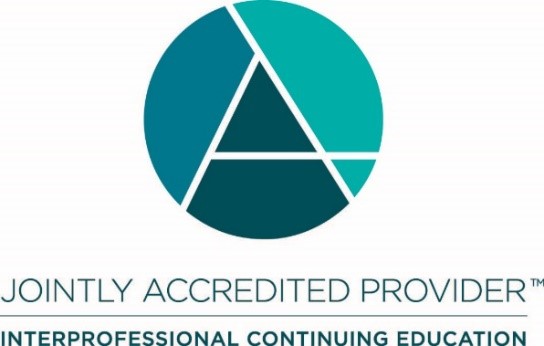Clinical Updates: Metastatic Colorectal Cancer
Each of the therapies for mCRC are associated with certain toxicities, many of which differ depending on the mechanism of action; therefore, the supportive care needs of patients receiving systemic therapy for mCRC vary. Additionally, the approval of new therapies has substantially expanded the treatment options for mCRC, raising new questions about how to optimally sequence these therapies. As the treatment options for patients with mCRC continue to expand, oncology nurses will need to stay informed on current treatment recommendations and research so they can best educate their patients and manage toxicities.
Target Audience
This educational program is designed to meet the educational needs of oncology nurses who manage patients with cancer.
Learning Objectives
Following this activity, participants should be able to:
- Describe current treatment approaches for patients with metastatic colorectal cancer
- Explain results of recent clinical trials for new treatment options for metastatic colorectal cancer
- Discuss how newly-approved therapies and emerging treatment approaches may be incorporated into clinical practice, including supportive care considerations
Nicole M. Ross, MSN, CRNP, AOCNP
Fox Chase Cancer Center
NCCN Medical Education Disclosure Policy
It is the policy of NCCN that every 12 months, all faculty, moderators, activity planners and all internal planning staff participating in NCCN continuing education activities are expected to disclose any financial relationships with a commercial interest as defined by the Accreditation Council for Continuing Medical Education (ACCME) Standards for Commercial Support. In addition, all faculty presentations have been reviewed for adherence to the ACCME’s Standards for Commercial Support (the provider develops activities/educational interventions independent of commercial interests [SCS 1, 2 and 6] by experts on the topics).
Per the ACCME Standards for Commercial Support, individuals who do not disclose relevant financial relationships will be disqualified from involvement in the CE activity as a content developer, planner, or presenter. A complete list of individuals’ relationships with external entities is available upon request.
Definitions
NCCN continuing education considers financial relationships to create a “conflict of interest” when an individual has both a financial relationship with a commercial interest and the opportunity to affect CE content about the products or services of a commercial interest with which he/she and/or a spouse or partner has a financial relationship.
NCCN continuing education considers “relevant financial relationships” as financial relationships in any amount occurring within the past 12 months that create a conflict of interest. NCCN does not set a minimal dollar amount for relationships to be significant. Inherent in any amount is the incentive to maintain or increase the value of the relationship.
Faculty Disclaimers
All faculty for this continuing education activity are competent in the subject matter and qualified by experience, training, and/or preparation for the tasks and methods of delivery.
Faculty presentations may include discussion of off-label use. Faculty will disclose that the use in question is not currently approved by the FDA per the product labeling.
Faculty Disclosures
The faculty listed below discloses no relevant financial relationships:
Nicole M. Ross, MSN, CRNP, AOCNP
NCCN Staff Disclosures
The NCCN Activity Planning staff listed below discloses no relevant financial relationships:
Robert W. Carlson, MD; Melissa Esplen; Mark A. Geisler; Kristina M. Gregory, RN, MSN, OCN; Kristin Kline Hasson; Rose Joyce; Karen Kanefield; Lisa G. Kimbro, MBA, CPA (Employed by NCCN until 8/10/18); Wui-Jin Koh, MD; Joan S. McClure, MS (Employed by NCCN until 8/1/18); Lisa Perfidio, MS; Sarah Sinclair; Kathy Ann Smith, CHCP; Gary J. Weyhmuller, MBA, SPHR
The NCCN Clinical staff listed below discloses no relevant financial relationships:
Lisa Gurski, PhD

In support of improving patient care, National Comprehensive Cancer Network (NCCN) is jointly accredited by the Accreditation Council for Continuing Medical Education (ACCME), the Accreditation Council for Pharmacy Education (ACPE), and the American Nurses Credentialing Center (ANCC), to provide continuing education for the healthcare team.
NCCN designates this educational activity for a maximum of 0.60 contact hours.
Available Credit
- 0.60 ANCC contact hours
- 0.60 Participation
Required Hardware/software
To complete this activity, users will need:
- A device with an Internet connection
- One of the two latest versions of Google Chrome, Mozilla Firefox, or Safari (Internet Explorer is no longer supported)
- Adobe Flash Player and/or an HTML5 capable browser for video or audio playback
- Adobe Reader or other PDF reader software for certificate viewing/printing

 Facebook
Facebook X
X LinkedIn
LinkedIn Forward
Forward